5 Top Java based IDEs in 2017
For one of the most commonly used programming languages, Java, we have seen a lot of tools coming into the market—some staying and some leaving. Using Java, software developers can make a vast range of software, as Java is divided into three versions:
- Java SE: Standard Edition of Java allows developers to make desktop applications using this programming language.
- Java EE: Enterprise Edition of Java allows developers to make web applications in Java which are scalable to thousands of servers.
- Java ME: Micro Edition in Java using those applications running on embedded and mobile devices in the Internet of Things, microcontrollers can be made.
Due to versatile capabilities of Java, we can find many Java integrated development environments or IDEs today. Employing the use of the right IDE acts as a powerful software development tool for us as it can speed up the development process and provide us with right tools for the job.
In this article, we've compiled a list of the five best Java IDEs, which are available to the world and which may or may not be free.
NetBeans
NetBeans is an open source IDE written in Java and is one of the favourite IDE’s for Java coding for many people.
The NetBeans IDE supports development of all Java application versions (Java SE, JavaFX, Java ME, Java EE, EJB and mobile apps) standard out of the box. Functionality in NetBeans can be easily extended through the use of plugins which can be developed by third party developers.
The NetBeans IDE can be used to develop in Java, but also supports other languages, in particular PHP, C/C++, and HTML5.
NetBeans features are: an Ant-based project system, support for Maven, refactoring, and version control (supporting CVS, Subversion, Git, Mercurial and Clearcase). It is released under a dual license consisting of the Common Development and Distribution License (CDDL) v1.0 and the GNU General Public License (GPL) v2.
It is cross-platform and runs on Microsoft Windows, Mac OS X, Linux, Solaris and other platforms supporting a compatible JVM.
Eclipse
Eclipse is another free Java IDE for software developers and programmers and it is mostly written in Java. Eclipse lets you create various cross platform Java applications for use on mobile, web, desktop and enterprise domains.
Its main features include a Windows Builder, integration with Maven, Mylyn, XML editor, Git client, CVS client, PyDev, and it contains a base workspace with an extensible plug-in system for customizing the IDE to suit your needs. Through plugins you can develop applications in other programming languages some of which include C, C++, JavaScript,, Perl, PHP, Prolog, Python, R, Ruby (including the Ruby on Rails framework), just to name just a few.
Eclipse is available under an Eclipse Public License and is available on Windows, Mac OS X and Linux.
IntelliJ
Yet another of the most preferred IDEs for Java developers, JetBrains’ IntelliJ IDEA comes free of cost. Offering support for several build systems, this platform also features intuitive code completion, integration with unit testing frameworks, a full-featured database editor, and a UML Designer as well.
IntelliJ IDEA Community Edition is a free Java IDE (Integrated Development Environment) mainly used for Android app development, Scala, Groovy, Java SE and Java programming. It is lightweight in design and comes with useful features like JUnit testing, TestNG, debugging, code inspections, code completion, support for multiple refactoring, Maven build tools, ant, visual GUI builder and code editor for XML and Java.
There are some features missing from the Community Edition but if you require more you can buy a license to unlock all the features.
IntelliJ Idea Community Edition is is released under the Apache 2 License.
BlueJ
BlueJ is an integrated development environment (IDE) for the Java programming language. It has been mainly developed for educational purposes, but is also suitable for those who wish to do small-scale software development. It runs with the help of a JDK (Java Development Kit).
BlueJ is mainly developed for the teaching of object-oriented programming, and its design differs from other development environments as a result.
The main screen graphically shows the class structure of an application under development and objects can be interactively created and tested. This interaction facility, combined with a neat and clean user interface, allows easy experimentation with objects under development which allows beginners to get started more quickly, and without being overwhelmed.
Newbie users can check on values and call methods on them, pass them as parameters and more, and Java expressions can be invoked without compiling. This means BlueJ is a powerful graphical shell/REPL for Java.
JDeveloper
JDeveloper is a IDE supplied by the Oracle Corporation and released as freeware. It offers many features for development in Java, XML, SQL and PL/SQL, HTML, JavaScript, BPEL and PHP. JDeveloper can be used for coding, debugging, optimization, profiling, and deploying. It integrates with the Oracle Application Development Framework (Oracle ADF) which is an end-to-end Java EE-based framework that further simplifies application development.
JDeveloper comes in 3 flavors which include the Java Edition, J2EE edition and Studio Edition which comes with a whole different set of features.
In terms of the Java Edition what is included out of the box is Java SE 6 Support, Code Editor, Code Navigation, Refactoring, compatibility with Swing, Unit Testing, Version Control, Auditing & Metrics,Debugging, Profiling, Ant Support, Maven Support, XML Support and Open API & Extensions.
The same IDE platform also serves as the basis of another Oracle product, SQL Developer.
Conclusion
Though we provided a list of compiled IDEs we tested to check what suits the best, it is still up to you to decide which one suits your needs. There are excellent IDEs like DrJava, jGrasp, jEdit but only the above 5 made to the top 5 list in terms of Java IDEs because they have support from third-party developers and their functionality can be easily extended by the mere use of plugins.
Looking for more Java? Checkout 15 Java libraries that every developer should know or stop by the homepage to find all your Java SDKs in place.
Recent Stories
Top DiscoverSDK Experts


Compare Products
Select up to three two products to compare by clicking on the compare icon () of each product.
{{compareToolModel.Error}}
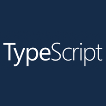
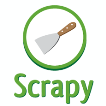


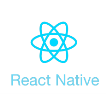


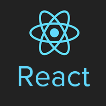







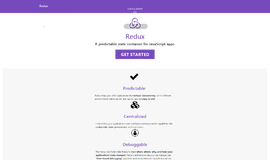
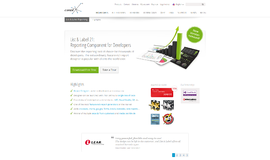
{{CommentsModel.TotalCount}} Comments
Your Comment